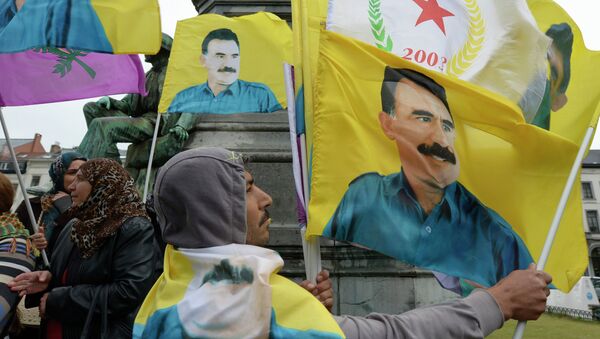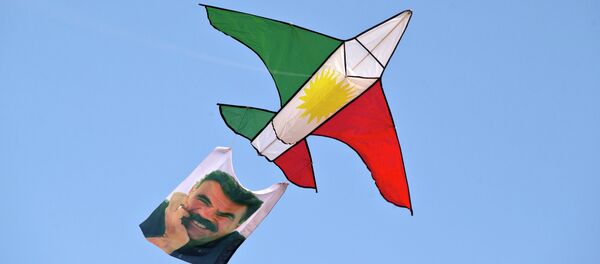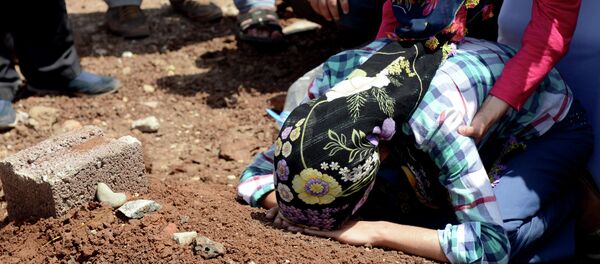The peace process between Kurds and Turkey can continue if the leader of the Group of Communities in Kurdistan (KCK) is freed, the group' press secretary Demhat Agit told Sputnik Kurdistan in an exclusive interview.
The KCK was founded by Kurdistan Workers' Party (PKK) leader Abdullah Ocalan in 2005, and the PKK, designated as a "terrorist organization" in Turkey and other countries, is one of the members of the group.
"The chief negotiator and the leader of our movement elected by us is imprisoned. If [the Turkish government] gives our leader the ability to work in conditions of freedom, the why couldn't we start the peace process again, guided by the Dolmabahce agreeement?" Agit told Sputnik Kurdistan.
"Because of this, we as a movement have no strategy to reach our goals through military methods. Our strategy is to solve the Kurdish issue through democratic political ways. This is our principle. But we have to defend ourselves," Agit added
According to Agit, the PKK, whose leaders are currently hiding in the mountains of Iraqi Kurdistan, and the Turkish government are both making demands of each other.
"We always expected that, in connection with the 16 points of the Dolmabahce agreement, the Turkish government would again get back on track. However, the tentative democratic-political solution of the issue has currently reached a dead end," Agit told Sputnik Kurdistan.
"We did not start the conflict. A tense period is being observed in Turkey. The period which began before the elections and continues from April to today," Agit said.
Agit added that unlike the HDP, which aims to settle the issue entirely through political means, the KCK seeks to also utilize self-defense. Agit added that the PKK did not wait for the elections to start the peace process because it sees the ruling AKP party's goal of forming a presidential rather than a parliamentary republic, using war to achieve its means.
"Society is becoming militarized. Society is being imposed with the perception that 'We are fighting IS and the PKK, and are surrounded by enemies on four sides.' And this is being presented in such a way that conducting the current struggle is only possible with a strong ruling party and a strong ruler at its head," Agit told Sputnik Kurdistan.




